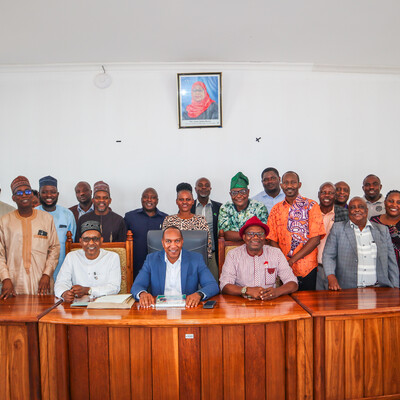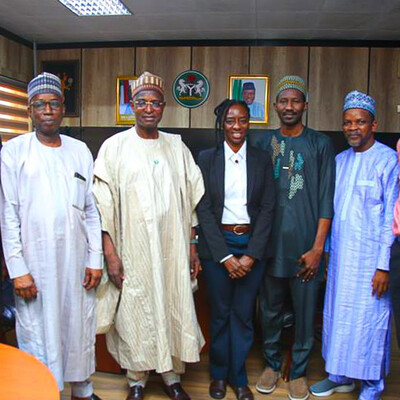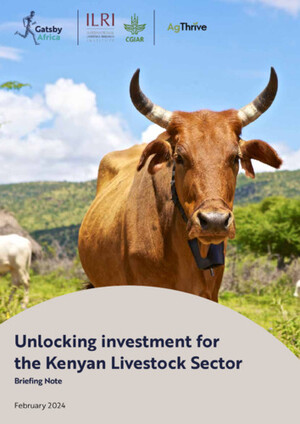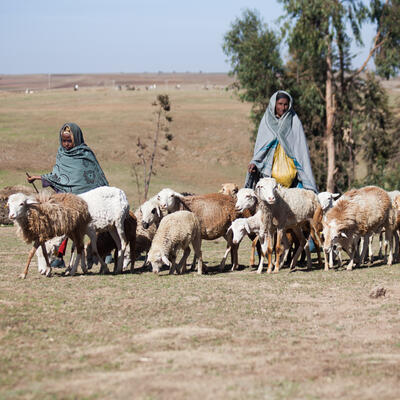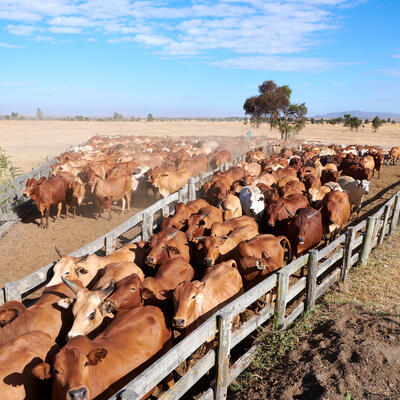

FAO conference on livestock transformation: Some 'quotable quotes' from ILRI's partners
Landmark UN conferences in Rome and Dubai are putting sustainable livestock issues in the limelight
At this year’s ongoing climate summit, in Dubai, livestock issues are being defined by the International Livestock Research Institute (ILRI) and its partners as a climate change ‘solution with legs’. The high profile of livestock and other food systems issues at this year’s climate summit, the 28th such annual event, is a first. This milestone was enhanced two months earlier by a global livestock conference hosted by the Food and Agriculture Organization of the United Nations (FAO), where 740 livestock experts—of all kinds and representing livestock systems of all kinds practiced in all parts of the world—gathered in Rome for a Global Conference on Sustainable Livestock Transformation. The agenda of the conference, the first of its kind ever held by FAO, was organized thematically around the Four Betters of FAO’s 2021 strategic framework: Better production, better nutrition, better environment and better life.
The FAO conference
Better production

‘As recalled by Jimmy smith this morning, the livestock sector must be better organized and better supported.’
—Monique Eliot, World Organization for Animal Health
Better Nutrition

‘The world is seriously off-track in tackling the multiple forms of malnutrition. Hunger and obesity are rising in all parts of the world. How can animal source foods help?’
—Thin Lei Win, food and climate journalist and session moderator

‘Terrestrial animal source foods provide higher quality proteins than other foods. We need to promote sustainable consumption patterns.’
—Carlos Cherniak, FAO Committee on Agriculture (COAG) Subcommittee on Livestock

‘1 in 5 children around the world have stunted growth; 45 million children are wasted; 2 billion people are overweight and obese; and 2 billion experience “hidden hunger” due to micronutrient deficiencies.
‘Animal source foods can make vital contributions to meeting global nutrition targets. Food-based dietary guidelines may be leveraged to recommend animal source foods as part of healthy diets, encompassing adequacy, diversity, balance and moderation.’
—Lora Iannotti, Washington University in St. Louis, USA

’The many differences in individuals and their nutritional status, their financial backgrounds and their cultures and values are not often captured by blanket dietary recommendations. We need to better understand, and to embrace, diversity.’
‘We’re omnivores. Throughout human evolution we’ve conquered many ecosystems using local resources that range from being completely animal-based to being heavily plant based. So there are lots of options there. But the more restrictive your diet becomes—that is, the more you throw out valuable nutrient-dense foods—the more you complicate things.’
—Frédéric Leroy, Vrije Universiteit Brussel, Belgium and member of the Scientific Council of the World Farmers’ Organisation

‘I worry about corporate capture of the term “plant-based foods” when “plant-based diets” do include animal source foods.’
’Nutrient equity is a really important concept. When we have ten billion people to feed equitably, nutrition security in some ways trumps food security.’
—Anne Mullen, Ryan Institute, University of Galway, Ireland

‘The food safety solution is not to build a cold chain in every country. The so-called “wet markets” that exist in many developing countries don’t have much of a cold chain. But they work. Developing global food safety standards is fine, but let’s not make the perfect the enemy of the good.’
‘We in the private sector have a duty—we have a legal obligation and we have a moral obligation—to make sure that the food that we provide is safe and affordable.’
‘Regarding the environmental impacts of livestock production, you should demand accountability from us in the private sector. What we ask is for equity also in how that debate is carried out. It should be based on science. We need to have something like the Codex Alimentarius for environmental impact, which would allow us to all be accountable, on a scientific basis.’
‘About cell-based meats—bring it on. Bring on the competition. Prove scientifically that your product is superior. Prove that all the claims being made are actually true. Because at the moment, these are just claims. Prove it and we will accept that, embrace that.’
‘Better livestock sustainability includes better environment, better livelihoods, better economic well-being—it’s leaving the world a better place. And better animal welfare is absolutely a part of that.’
—Hsin Huang, International Meat Secretariat
Better Environment

‘Kenya has had six failed rainy seasons in a row. We lost about 3 million head of cattle and 500,00 sheep and goats. The Kenya Government is mitigating such disasters through index-based livestock insurance, an innovation piloted by ILRI starting in 2010. This unusual insurance provides compensation to livestock keepers early in a drought cycle to minimize livestock losses by supporting drought-coping strategies.’
‘This Kenya Livestock Insurance Project has inspired a similar project, called DRIVE—De-risking, Inclusion and Value Enhancement of Pastoral Economies in the Horn of Africa—in four countries of the Horn of Africa: Kenya, Ethiopia, Djibouti and Somalia. DRIVE includes bundling insurance with other services such as rangeland restoration and livestock marketing. This project will cover 300,000 households and insure 1.5 million tropical livestock units. In its first year, DRIVE has received Kshs200 million in premiums from more than 74,000 pastoralists.’
—Bernard Kimoro, Ministry of Agriculture and Livestock Development, Kenya

‘One-third of global cereal production is used as feed for livestock, but 86% of feed dry matter is non-edible by humans. Food and feed compete for land but almost half of the land used for feed production cannot be cropped.’
‘We can improve the environmental benefits of livestock through better circularity—greater use of non-edible biomass as feed, greater use of manure to enrich crop soils, and reducing food waste by consuming more offal and other by-products from processing animal source foods.’
—Anne Mottet, International Fund for Agricultural Development (IFAD)
Better Life

‘As a pastoralist, livestock is not a commodity, not a business; for us. It is living in harmony with nature. In the Sahel, 40% of GDP is from pastoralists. So we are the people making the economy. So that means we are the solutions. We are the people putting carbon in the soil. Who are the people fertilizing soils.’
—Hindou Oumarou Ibrahim, Association for Indigenous Women and Peoples of Chad

‘By ensuring that small-scale livestock producers have a better life, we’re all going to have a better life.’
‘The term "nomadic" has been used over the centuries by colonizing forces to dispossess people of their lands. Nomads move to resources as they become available, whereas those of us who live sedentary lives expect resources to come to us. And the latter has a cost—a cost for the environment.’
‘When I talk about 21st-century innovations, I’m not necessarily referring to digital innovation. I’m not necessarily referring to technologies. It is as much about the willingness to innovate, to listen, and to understand, drawing on those thousands of years of traditions that are going to help us tackle our challenges in the 21 century..’
—Robyn Alders, Australian National University
Other ILRI partners at the FAO conference

FAO
Qu Dongyu, FAO

FAO
Nicola Hinder, Australia Department of Agriculture, Forestry and Fisheries

FAO
Thanawat Tiensin, FAO

FAO
Sam Thevasagayam, Bill & Melinda Gates Foundation
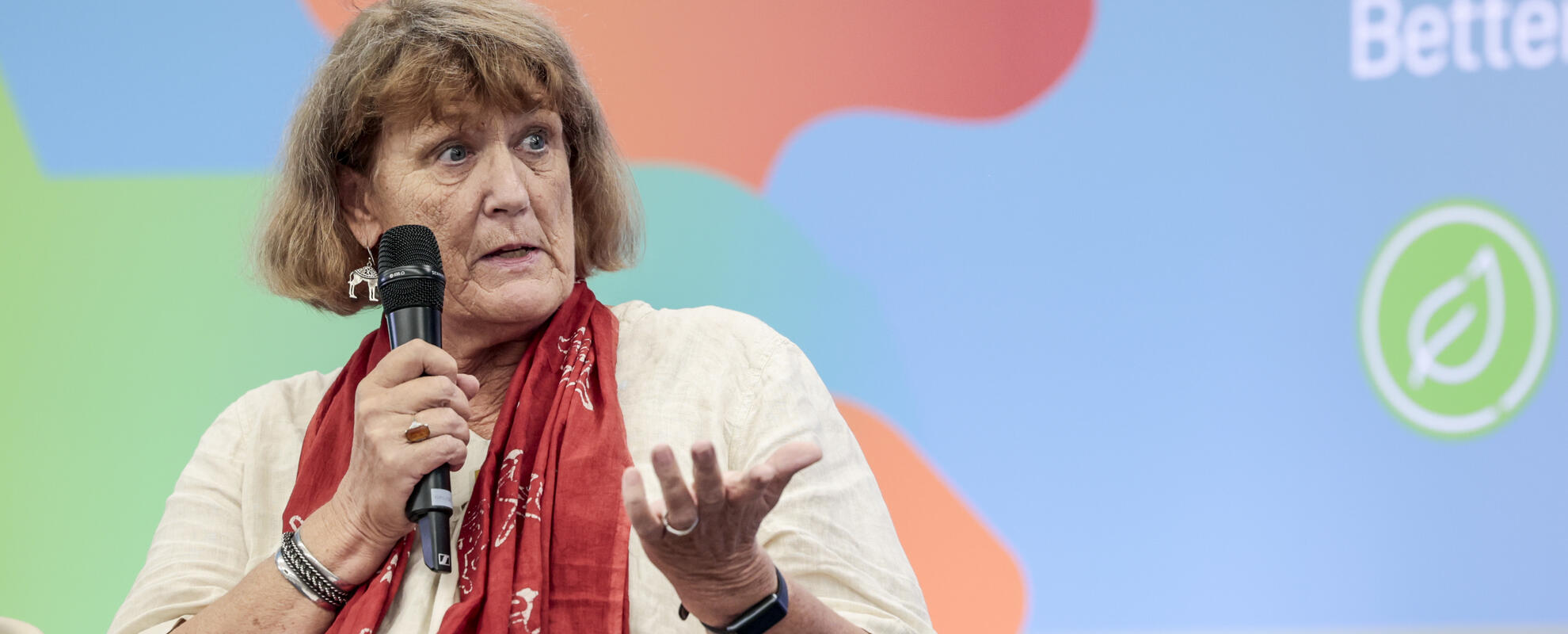
FAO
Ilse Kohler-Rollefson, League for Pastoral Peoples

FAO
Pierre Gerber, World Bank

FAO
Frank Mitloehner, University of California at Davis

FAO
Arianna Giuliodori, World Farmers' Organisation

FAO
Donald Moore, Global Dairy Platform

FAO
Gram Govaerts, International Maize and Wheat Improvement Center

FAO
Margaret Karembu, International Service for the Acquisition of Agri-biotech Applications
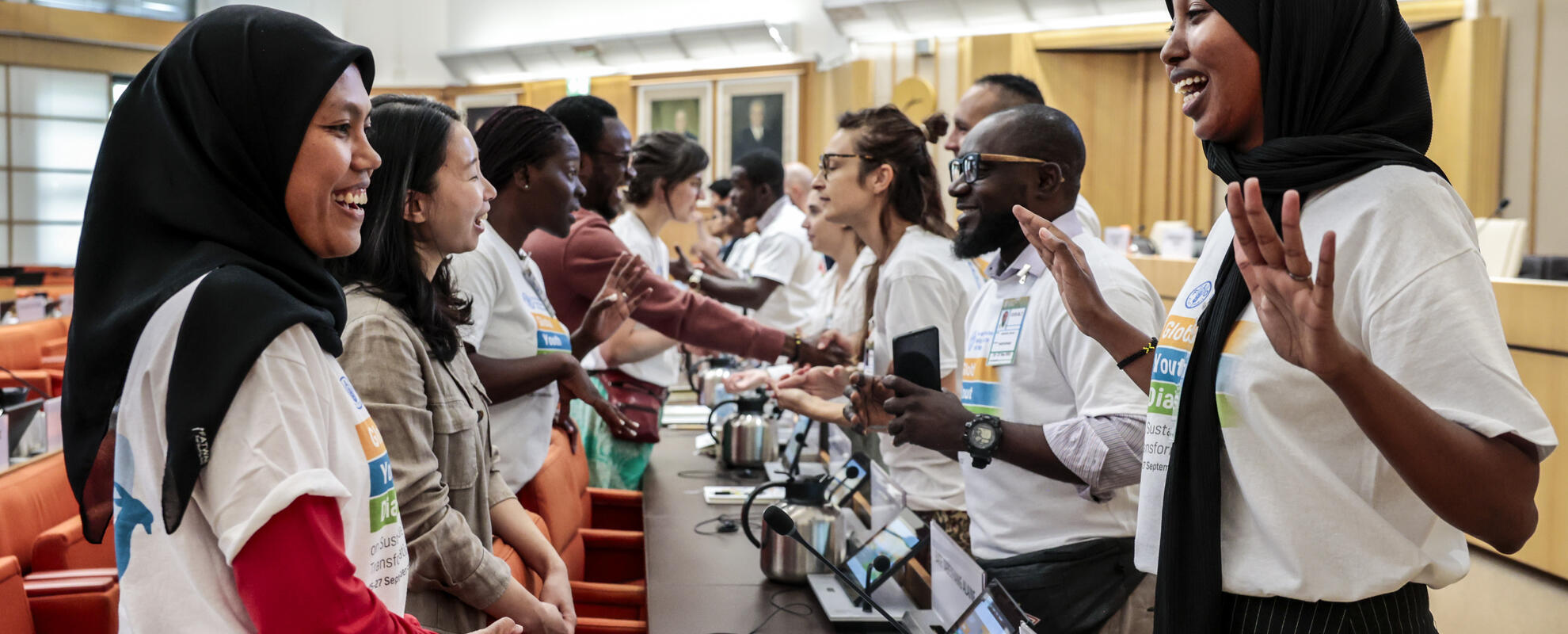
FAO
Members of the Global Youth Dialogue
You may also like
ILRI News
ILRI presents results of Livestock Sector Analysis and Strategy for Nigeria: Major step towards a national livestock master plan
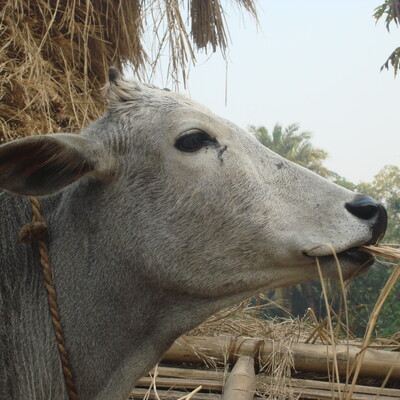
ILRI News
Veterinary conference challenges experts to adopt new approaches to livestock development in India
Exploring integration of KAZNET into Ethiopia’s national and regional resilience programming and information systems
Related Publications

Context Matters: Tackling Methane in Livestock Systems for a Sustainable Future
- Food Systems for the Future (FSF)
- Environmental Defense Fund
- International Livestock Research Institute
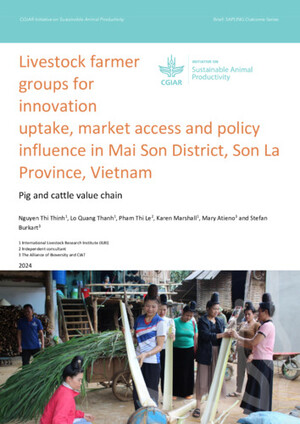
Livestock farmer groups for innovation uptake, market access and policy influence in Mai Son District, Son La Province, Vietnam
- Thinh, Nguyen Thi
- Thanh, Lo Quang
- Le, Pham Thi
- Marshall, Karen
- Atieno, Mary
- Burkart, Stefan

One Health scientific conference: International practices and lessons learned for Vietnam
- Vietnam One Health Partnership
- International Livestock Research Institute
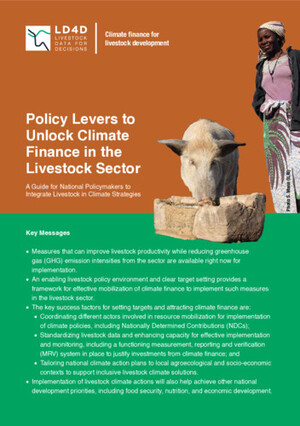
Policy levers to unlock climate finance in the livestock sector: A guide for national policymakers to integrate livestock in climate strategies
- Alemayehu, Sintayehu
- Cramer, Laura K.
- Gonzalez Quintero, Ricardo
- Kimoro, Bernard
- Kohler, Gregory
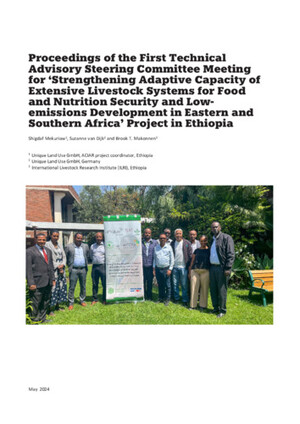
Proceedings of the First Technical Advisory Steering Committee Meeting for ‘Strengthening Adaptive Capacity of Extensive Livestock Systems for Food and Nutrition Security and Low-emissions Development in Eastern and Southern Africa’ Project in Ethiopia
- Mekuriaw, Shigdaf
- Dijk, Suzanne van
- Makonnen, Brook T.





